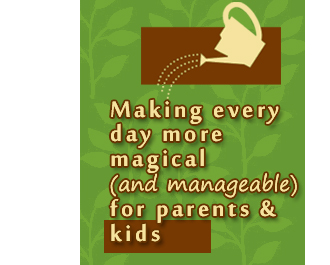I tend not to comment here about many of the education findings that I read about or that many of you ask about since my thoughts are usually in opposition to much of what I read. Because of my training in different areas and being raised and educated to ask and challenge accepted modes of thinking, I do the same with studies, research and all the rest. There are so many holes and so much missing from much of the work that the thought of applying much of it can be downright frightening. Using fMRI scans of children with ADD...without a whole lot of other information that can get into some real Big Brother territory, not to mention jumping to conclusions.
Having said that, I would like to comment on Building a Nation of Polyglots, Starting With the Very Young by describing my experiences as a teacher (and English as a Second Language teacher) for a few years to classes composed wholly of immigrant children. English was spoken in the classroom - by me and only me, at least at the beginning of the year.
Oh, did I happen to mention that they were 5 and 6 and in the first grade?
Did I mention that they were 27 children who spoke about 17 languages?
Did I happen to mention that many of them were brand new immigrants who came in at different times during the year and so the English learning process had to begin with them all over again from where they were?
Did I happen to mention that I single-handedly kept the caffeine industry going? I also learned how to say "good boy", "good girl" and "bathroom" in more languages than I'll ever need. (You should see how well I do when I travel!)
As a speaker of other languages, the child of immigrants, and someone whose first language is not English I was exquisitely attuned to the difficulty and challenges involved. The desire to say the words that just won't come out of your mouth the right way. The frustration of knowing perfectly well what it is that you're thinking but being absolutely incapable of translating it and getting it out. It's the feeling you get when you travel to another country. You know that you know what you're thinking and you know how to say it, you just don't know how to say it to them so they'll understand you.
It was truly one of the most amazing experiences of my career and taught me so much about human nature and the nature of communication. The children were warm and open to helping each other. They were sensitive to each other's needs without having to be told in words. Non-verbal communication was picked up quickly by the children in order to help each other. A look, an expression, a quivering lip, a smile were translated and understood. Latino children spoke some words in Chinese, Chinese children learned a bit of Russian and Russian children picked up some Urdu.
So much of the talk about education and children learning is fancy words and concepts and old theories recycled in new packaging. Having been there and done that I will tell you with complete authority and sureness that it's all about letting children do what comes naturally when it comes to learning. Let them play, interact, become curious, ask questions, get the attention they need, develop a sense of their strengths and weaknesses, learn to love learning and the process of learning and also how to interact with others in the best way to facilitate progress.
Children do that in any language that they speak. They are so open to helping each other learn and thrive. It's as they get older and defenses develop and get stronger that it gets harder to give and receive the help.
So yes, it was an interesting article and I was pleased that the issue is getting attention but let's step back a moment and get all the way back to the basics. The ABCs, as it were.
It's all there.
It's all been there all the time -
and it's so simple -
EVEN ADULTS CAN DO IT.
Subscribe to:
Post Comments (Atom)

5 comments:
old theories recycled in new packaging-
GREAT post Dr. Weingarten. I also wonder why people are so freaked out at letting kids be kids anymore. Your article made me reazlie that everyone is so busy trying to make kids be something that they don't let them be.
How do you retain the childhood curiosity and innocence without being immature?
Alba, thanks for the thought - the salutation is a bit premature thought- I'll keep you posted .
Anonymous - hmmmm - that's actually a very nice sentiment/question about the childhood curiosity and innocence. I have no idea really - I know that I adore the naturalness, openness
newness and curiosity in children and that I was the biggest kid in the room when I was teaching and when I work with children...I can also be Pollyanna-ish at times...but I'm going to have to think about that one some more and get back to you on it.
Thanks for the thought.
RK
Hey K -
Happy Thanksgiving! Love this post. I am always amazed when they bring out the "new" research only it's decade's old research repackaged.
Happy Holidays'
Lorna
Post a Comment